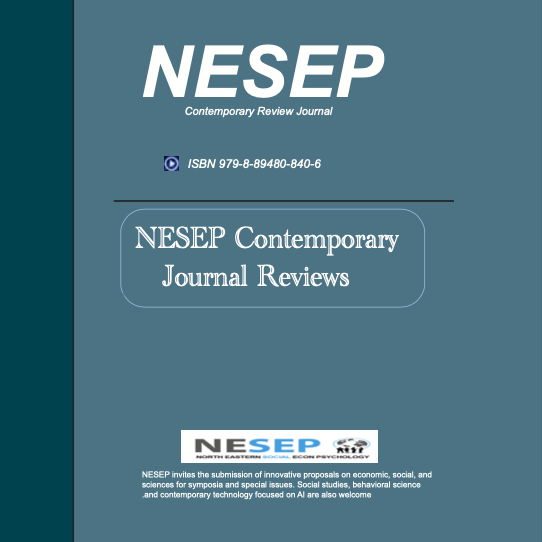Accepted Articles
We congratulate you on acceptance of your manuscript.

Annual Expo by the Journal of Young Explorers Meta and NESEP
- Fundamental or applied research
- Interdisciplinary research
- Judging on a rolling basis
- A work-in-progress research
- Completed research
- Unlimited topics and ideas
- ISBN 979-8-89480-840-6
- NESEP/NY-CSEF event at Harvard Club in NYC
Impact of Mask Policies on Social and Psychological Consequences During the Covid-19 Pandemic
Abstract: COVID-19 has proven detrimental to the economy and changed the nature of social interactions. Governments at every level have increasingly required the use of face masks in public spaces. Evidence has shown that mandatory mask-wearing policies can effectively control the outbreak of the virus, protecting susceptible populations (i.e., individuals with preexisting conditions, individuals 65 and older). Many communities encourage mask-wearing to reduce the chance of viral transmission. While mandatory mask policies appear to effectively reduce transmission of the virus, their long-term psychological effects are not yet known. In this study, we examine the association between the implementation of face mask mandates and detrimental psychological and social consequences as well as other relevant aspects. Also, this study tries to figure out if the mandatory mask policies are advisable, and if so, how it benefits the public.
Overall, this paper tried to suggest that short-term and institutional responses can coexist as a response to the issue. In addition, the quarantine policy examined in this paper showed a partial response. It is clear that there is no one policy that can comprehensively respond to the global and social problems brought about by the COVID-19 pandemic. Perhaps the government's policy cannot and does not need to fully respond to all the ills that our society faces. The government may be able to alleviate the problem by only partially responding to the public concerns and leaving the rest to the officials and citizens. In addition, the central government can overcome the issue by withholding judgment and by expressing an active choice by local governments and the media. By reviewing the quarantine policy for the COVID-19 crisis, it will be possible to discuss how a partial response to a policy problem can be improved.
Keywords: COVID-19, Mask Policies, Social Consequence, Anxiety and Stress, Psychological Effects
References
-
Detsky, A. S. and Bogoch, I. I. (2020, August 25). The Canadian Response To COVID-19. Retrieved from https://jamanetwork.com/journals/jama/fullarticle/2769439
-
Duan, L. and Zhu, G. (2020). Psychological interventions for people affected by the COVID-19 epidemic. Lancet. Psych. 7 300–302. 10.1016/s2215-0366(20)30073-0
-
Greenberg, N., Docherty, M., Gnanapragasam, S. and Wessely, S. (2020). Managing mental health challenges faced by healthcare workers during covid-19 pandemic. BMJ 368:m1211. 10.1136/bmj.m1211
-
Liu S., Yang L., Zhang C., Xiang Y. T., Liu Z., Hu S., et al. (2020). Online mental health services in China during the COVID-19 outbreak. Lancet. Psych. 7 E17–E18. 10.1016/S2215-0366(20)30077-8
-
Maheu, M. P., McMenamin, J. and Posen, L. (2012). Future of telepsychology, telehealth, and various technologies in psychological research and practice. Profess. Psychol. Res. Prac. 43 613–621. 10.1037/a0029458
-
Parshley, L. and Zhou, Y. (2020, December 4). Why every state should adopt a mask mandate, in 4 charts. Retrieved from https://www.vox.com/science-and-health/21546014/mask-mandates-coronavirus-covid-19
-
The Economist. (2020, October 14). Tracking covid-19 excess deaths across countries. Retrieved from https://www.economist.com/graphic-detail/coronavirus-excess-deaths-tracker
-
The Economist. (2020, October 11). Covid-19 has led to a sharp increase in depression and anxiety. Retrieved from https://www.economist.com/graphic-detail/2021/10/11/covid-19-has-led-to-a-sharp-increase-in-depression-and-anxiety
-
Wang, C. J., Chun, Y. and Brook, R. H. (2020, April 14). Response to COVID-19 in Taiwan: Big Data Analytics, New Technology, and Proactive Testing. Retrieved October 18, 2020, from https://jamanetwork.com/journals/jama/fullarticle/2762689
-
Zhou X., Snoswell C. L., Harding L. E. (2020). The Role of Telehealth in Reducing the Mental Health Burden from COVID-19. Telemed. E Health. 26 377–379. 10.1089/tmj.2020.0068